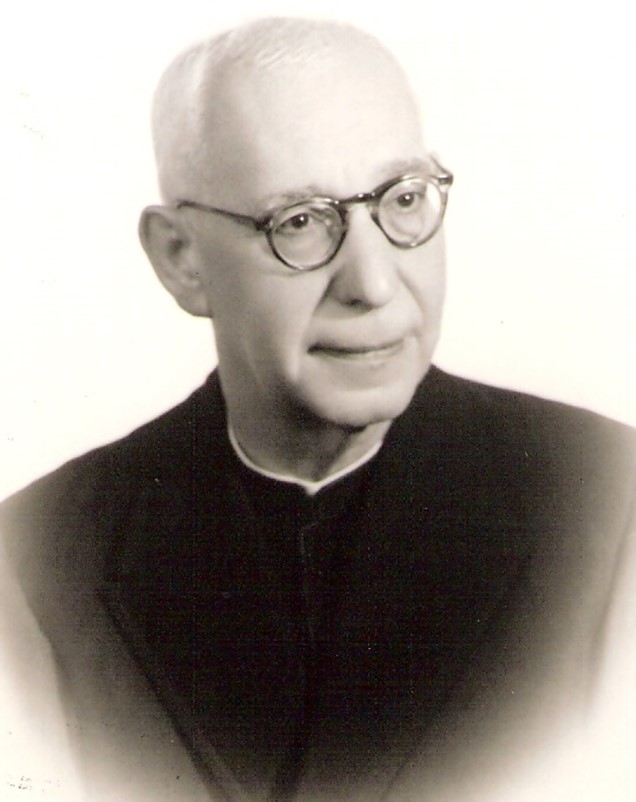
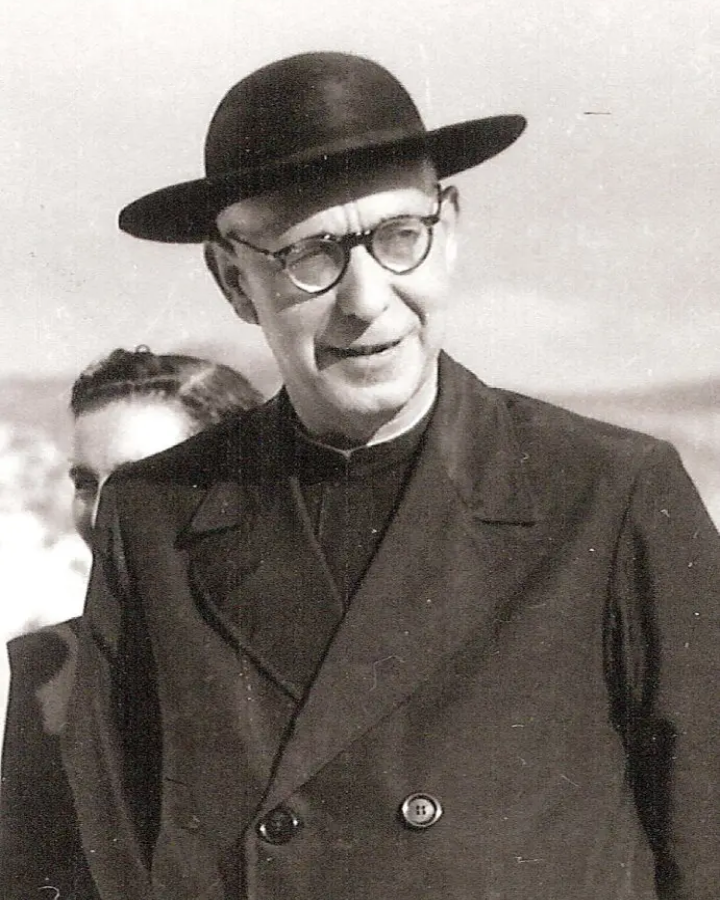
Our Founder
Vicente Garrido Pastor
Some biographical information
1896 Born in Benaguasil (Valencia-Spain), on November 12.
1921 Priestly ordination.
1922 Superior of the Colegio Mayor of Blessed San Juan de Ribera, in Burjasot (Valencia).
1924 Council member of the Association of Catholic Girls' Schools.
1925 He proposes to the Archbishop of Valencia the foundation of the Catholic Action Women's Youth.
1934 Approval of the Society of Christian Love (civil society).
1939 Religion teacher at the San Vicente Ferrer Women's Institute in Valencia.
1940 Approval of the Pious Union of Christian Love.
Spiritual Director of Corpus Christi College.
1944 Professor of Moral Theology at the Seminary.
1956 Penitentiary of the Cathedral of the S.I. of Valencia.
1964 Diocesan approval of the Obreras de la Cruz Secular Institute.
1971 Pontifical approval of the Instituto Secular Obreras de la Cruz.
1972 Started Cooperating Member Branch.
1975 He dies in Moncada (Valencia-Spain) on April 16.
1990 Beginning of the canonization process.
2016 Statement by the Venerable, 14 June.
Vicente Garrido responded to the challenges of his time
– Promotion of the Christian laity, especially women. She was a pioneer of her time, promoting the apostolic commitment of women in the Church and in the world.
– Evangelization of the simple and of the workers. He did not remain passive when he saw how the masses of workers were moving away from God and the Church and, together with the young women entering the Institute he founded, he encouraged the promotion and evangelization of the working classes, especially of women. With his words and testimony, he defended the value and dignity of manual work.
– Revitalization of the Christian life through the Spiritual Exercises, retreats, spiritual accompaniment, the administration of the Sacrament of Reconciliation and moral formation as a professor of Moral Theology in the Seminary.
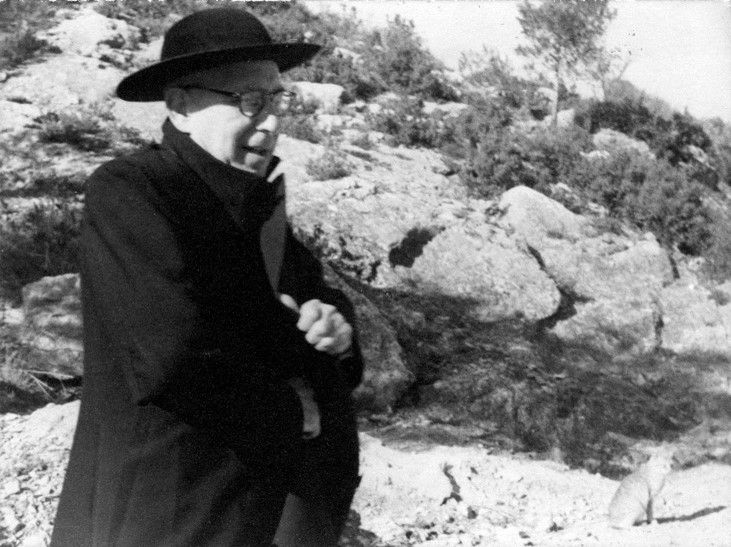
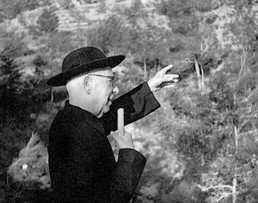
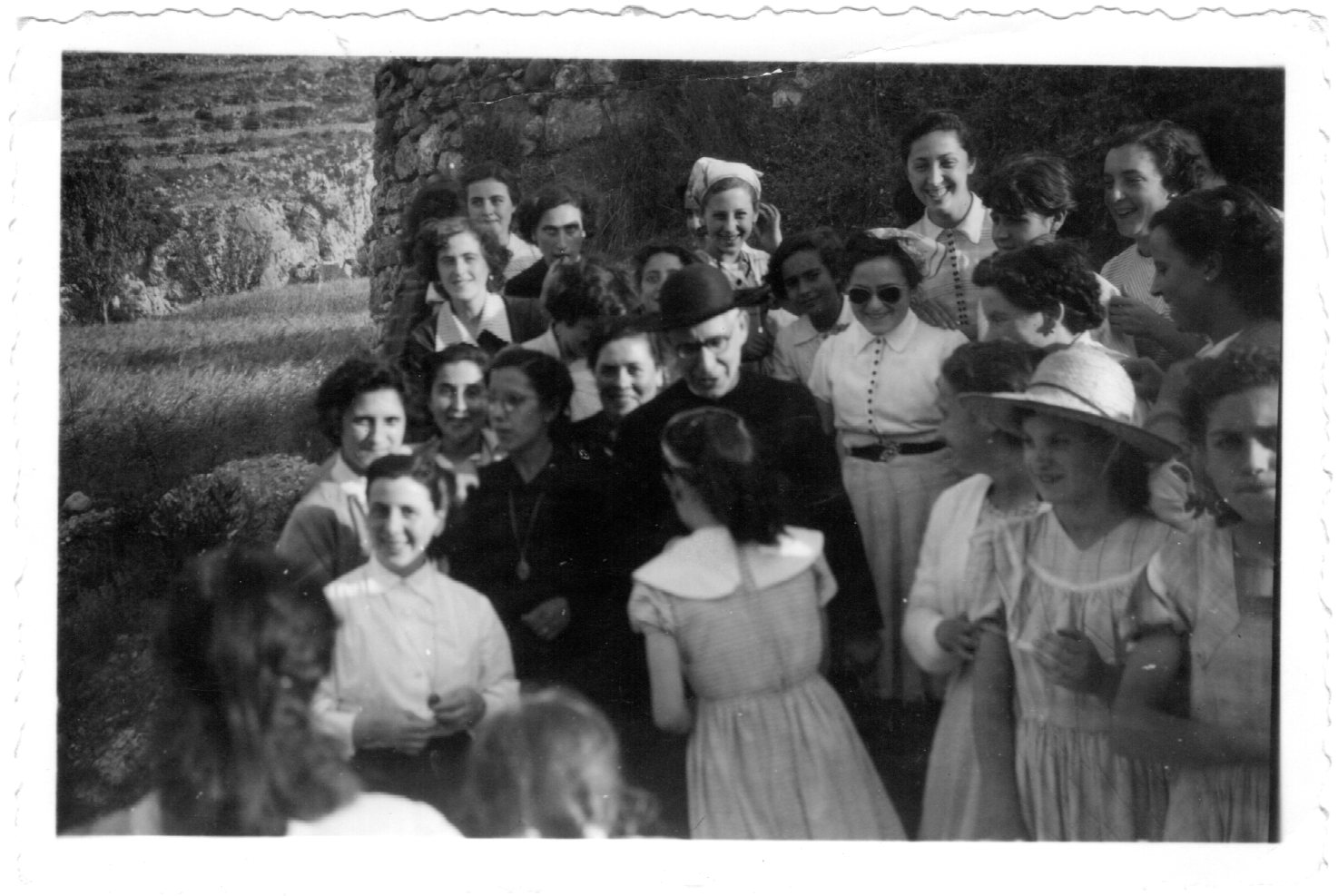

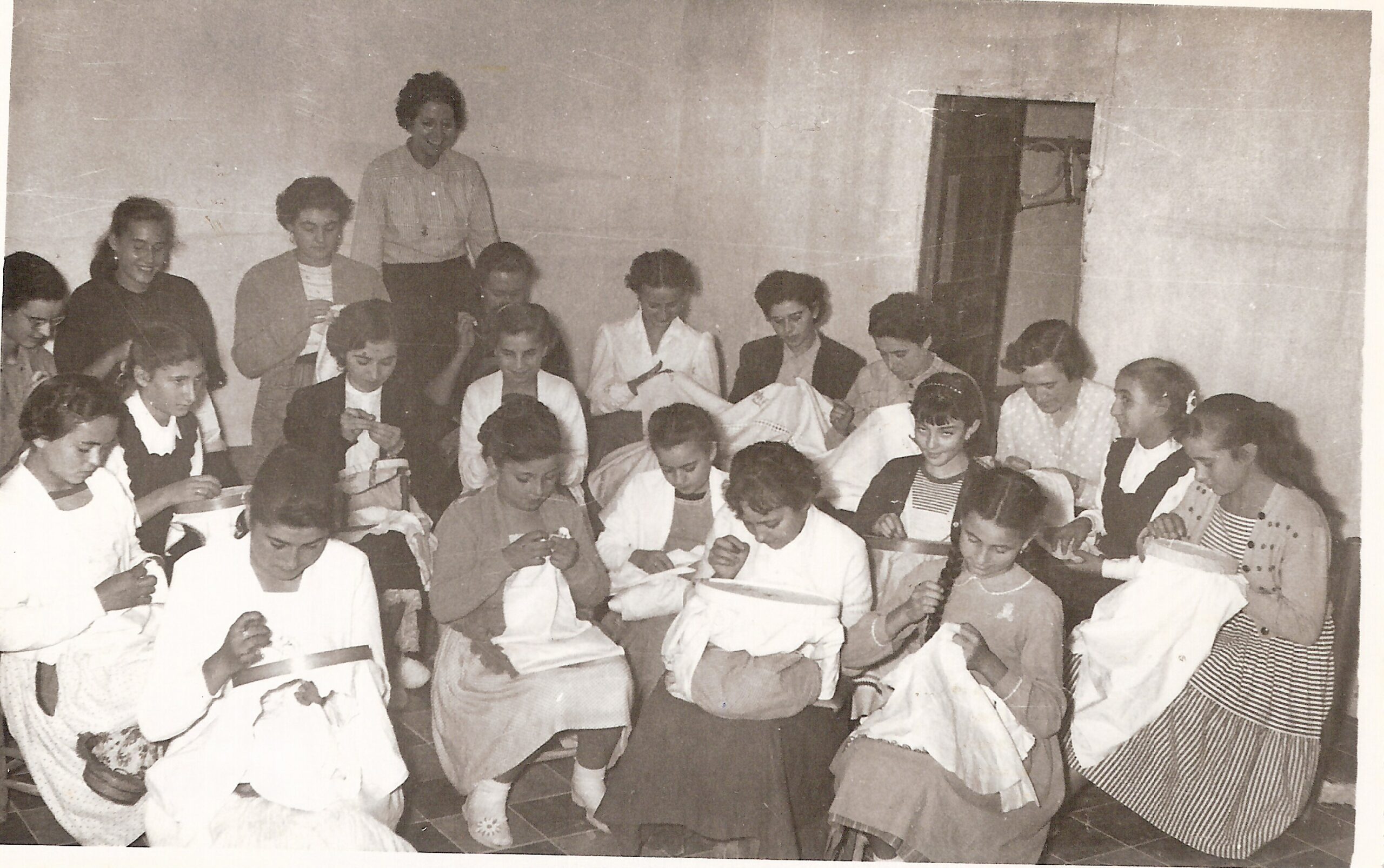
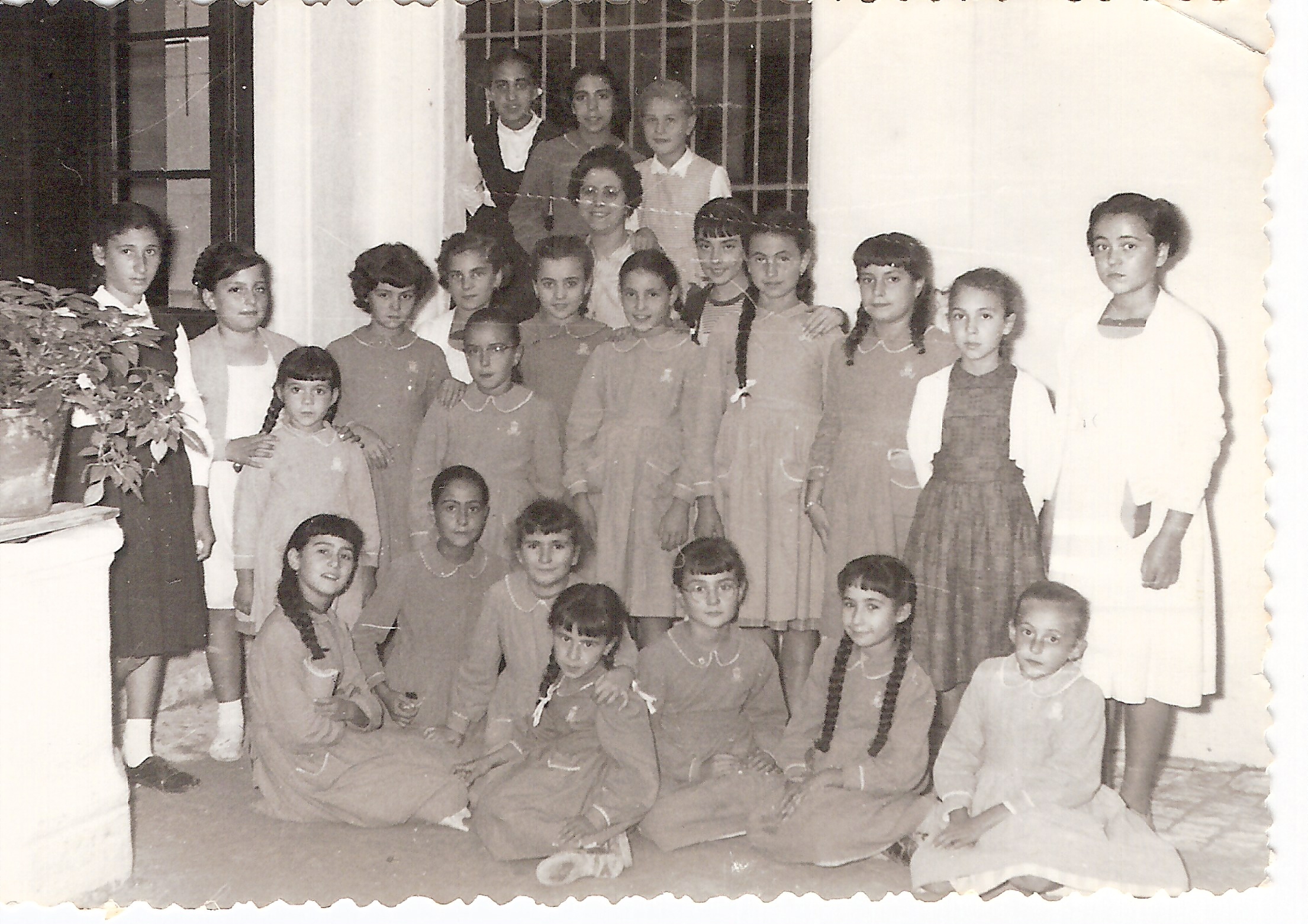
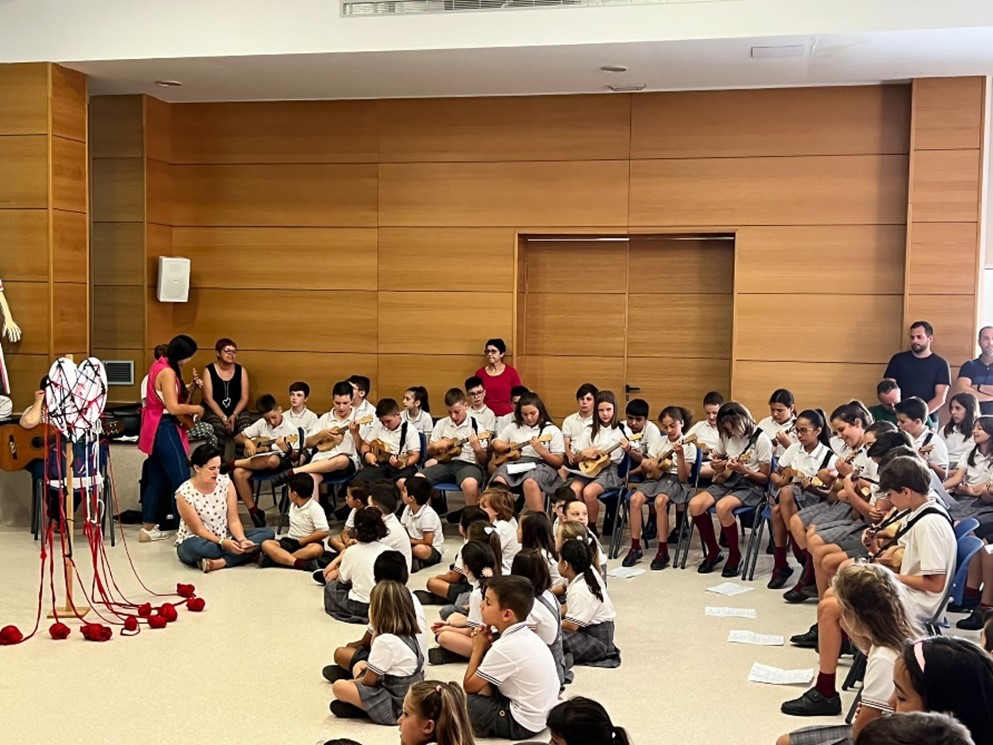


Founder of a secular institution
Don Vicente just wanted to "do the Gospel", to sow Christ in souls, and he gradually discovered that to be effective in the apostolate the presence of women totally consecrated to God was necessary, who shared their daily life with the people. Already in 1934 a new charism was emerging in the Church: consecrated secularity, which later, in 1947, was approved by Pius XII with the apostolic constitution Provida Mater Ecclesia.
Faithful to the promptings of the Spirit, he promoted in the Workers of the Cross a lifestyle centered on God, profound and simple, contemplative and markedly missionary, encouraging them to exercise the apostolate in the workplace, in workshops and centres, in the family environment and in social relations, in the apostolic works of the Institute (education, social projects, houses of spirituality and hospitality) and in the communities of the Church. He saw every place and situation as an opportunity to "transform the world through the Gospel."
As a fruit of the "last hour", in 1973, two years before his departure for heaven, Don Vicente founded the Institute's Partner Cooperators: men and women, priests, young and old, married and single, who wish to experience spirituality of the Institute and collaborate in its mission.
"The love of Christ impels us" (2 Cor 5:14)
Christ Crucified and his Mother, the Virgin of Sorrows, are the torches that illuminate the life of the Worker of the Cross. From them he must mold the virtues of faith, hope, charity, humility and strength.
Our history
We are a Secular Institute of Women
Our spirituality, our mission, our works, our members and ways of living
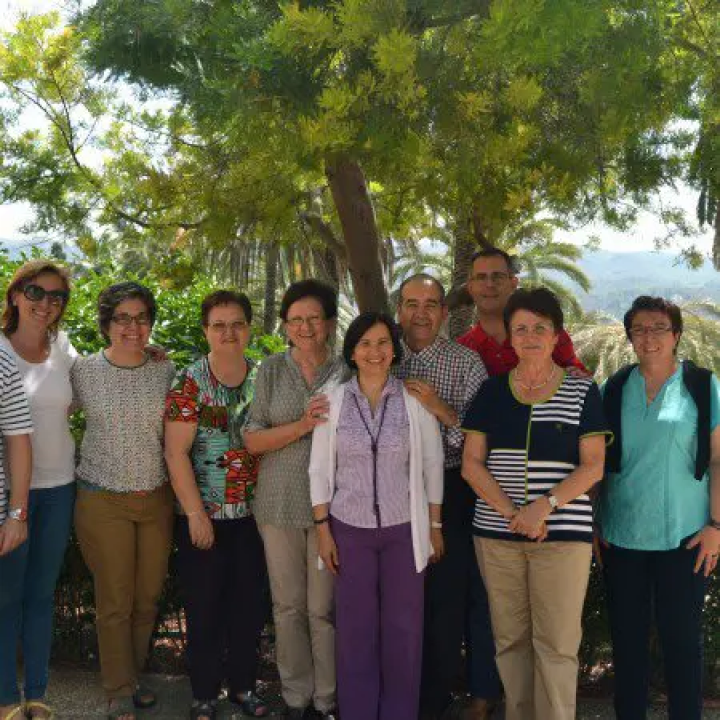
Spirituality
Christ Crucified and his Mother, the Virgin of Sorrows, are the torches that illuminate the life of the Worker of the Cross. From them he must mold the virtues of faith, hope, charity, humility and strength.
Our spirituality is inspired by Christ's self-emptying on the Cross, in such a way that we can say with Paul
I have never boasted among you that I know anything but Jesus Christ and him crucified (1 Cor 2: 2)
... from this knowledge and from this love will come the true apostles of the workers, who will go to the forefront ... (VGP)
They will strive to make their life a continuous gift of self, knowing that God through Christ has reconciled us to himself and has entrusted us with the ministry of reconciliation (2 Cor 5:18) to others.
Mission
Social apostolate of the workers in any part of the world, carried out with a spirit of vanguard and insertion among humble and hardworking people.
Apostolate
Work, examples, sow the doctrine and the spirit of Christ.
Social
Apostolate in the whole framework of society.
Work
Evangelization aimed primarily at the middle class, the poor, those who work by hand, classified in the current language as the "working class".

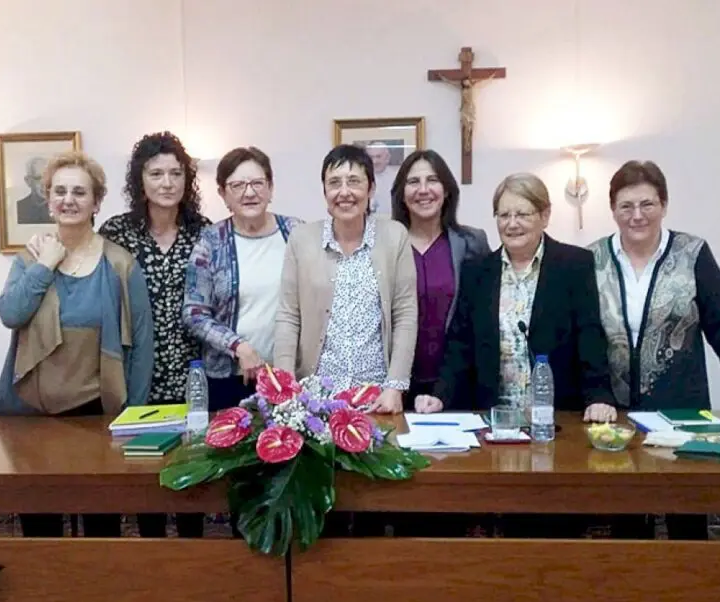
Characteristics of the Apostolate
Universality, to accommodate the environmental conditions of the time, place and people among whom the apostolate is exercised.
As consecrated seculars, each one can carry out his profession and his task in any area of society and collaborate in the communities of the Church, according to the secular lifestyle.
Characteristic works of the Institute
Christian formation and the human and professional promotion of women.
Parish collaboration.
Service to immigrants.

Apostolic action with people who work.
Rural apostolate.
Mission ad gentes.
The promotion and development of spiritual exercises and other complementary evangelizing actions.
Cooperating Members
Other members in a broad sense can enter the Institute to live the spirituality and collaborate in the apostolate: committed lay people, men and women, married couples, adults and young people.
Lifestyles
The Institute, respecting the different family,
work and personal situations of the Obreras de la Cruz, offers two possibilities;
To put oneself at the complete disposal of the Institute, living in fraternal groups to promote apostolic works and presences.
Or keep personal initiative, residing alone or with your family.




